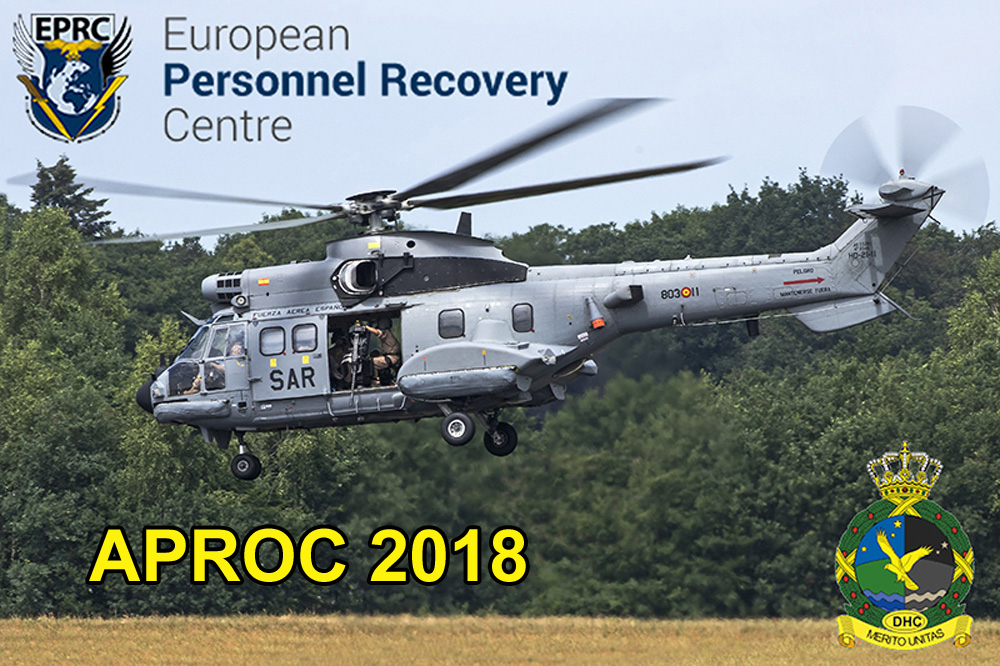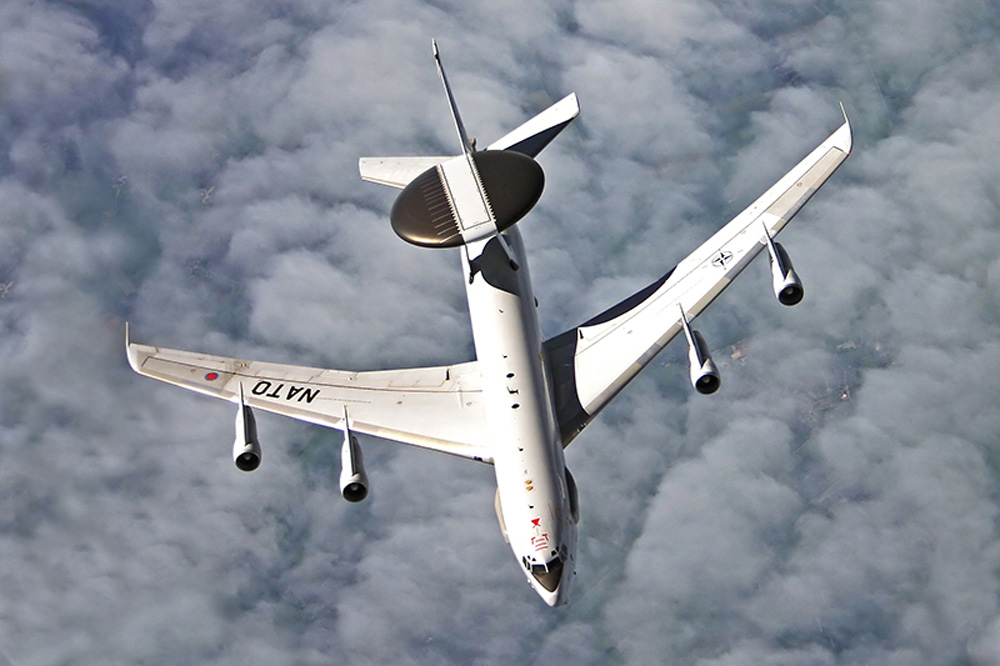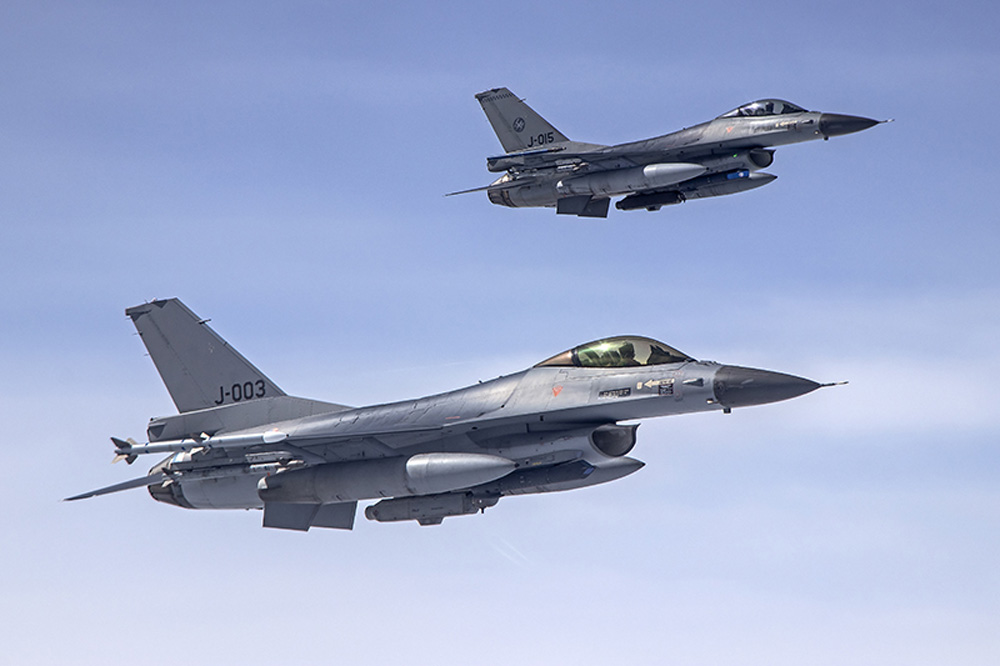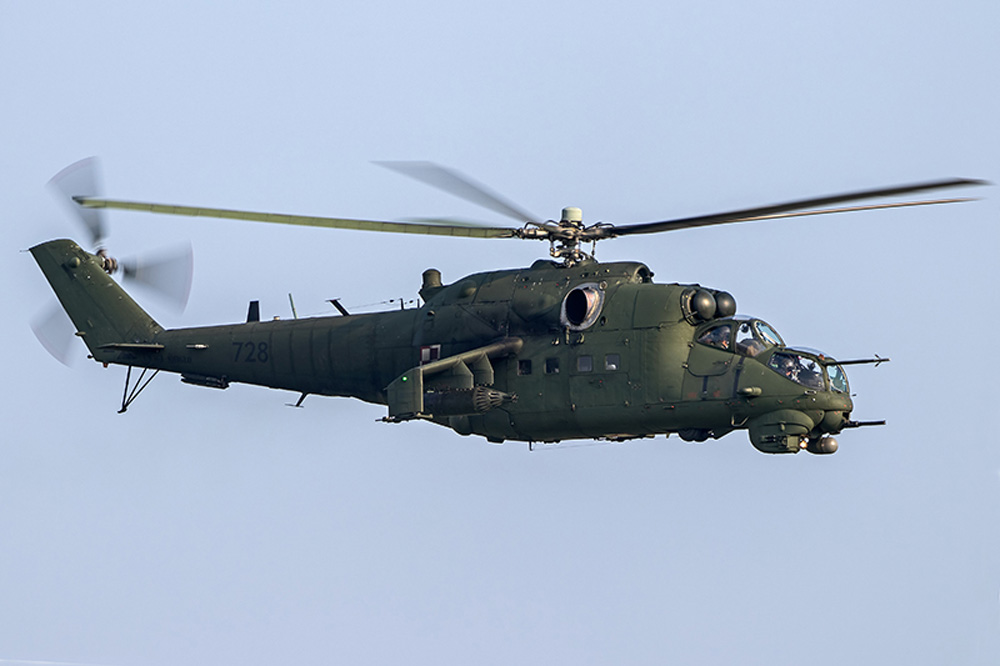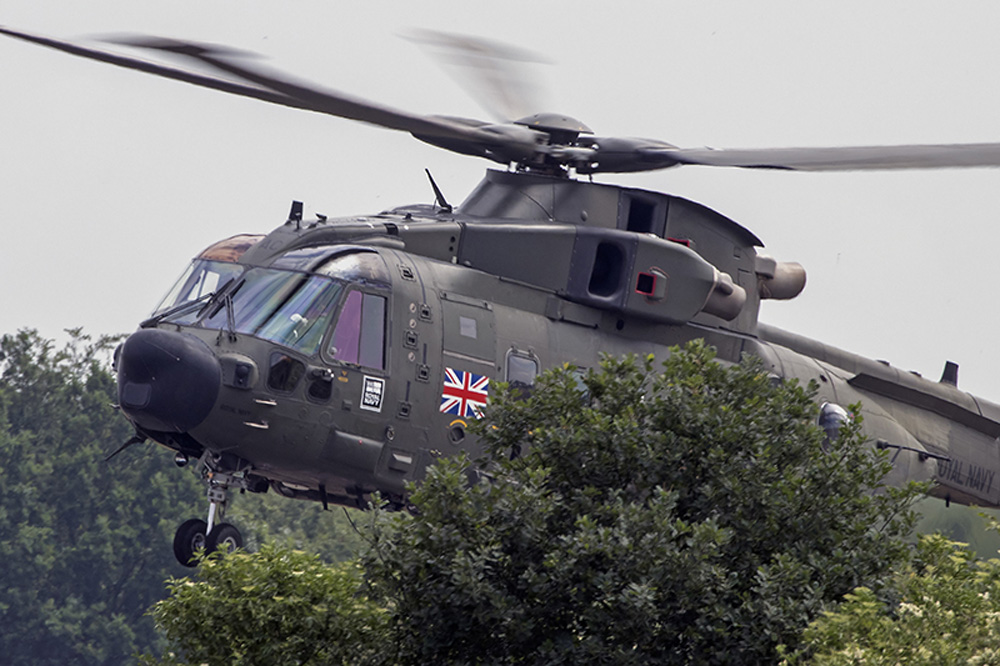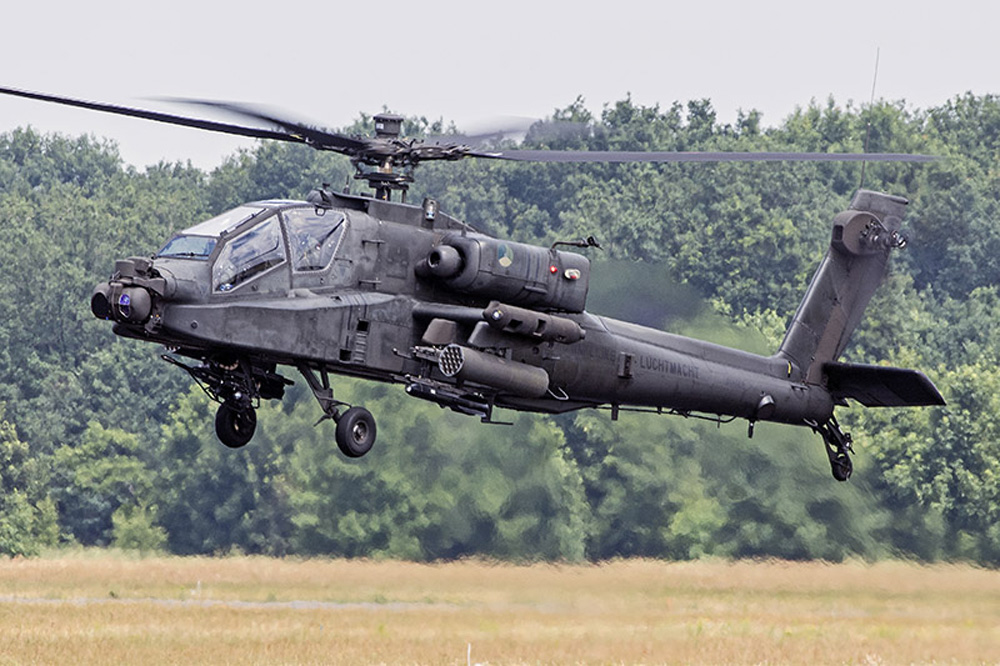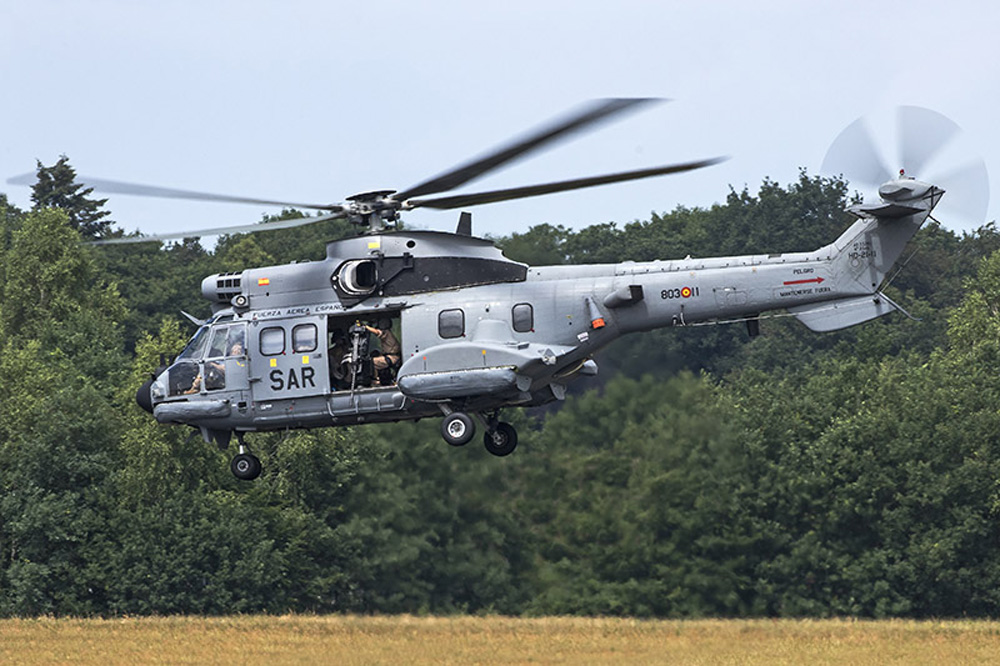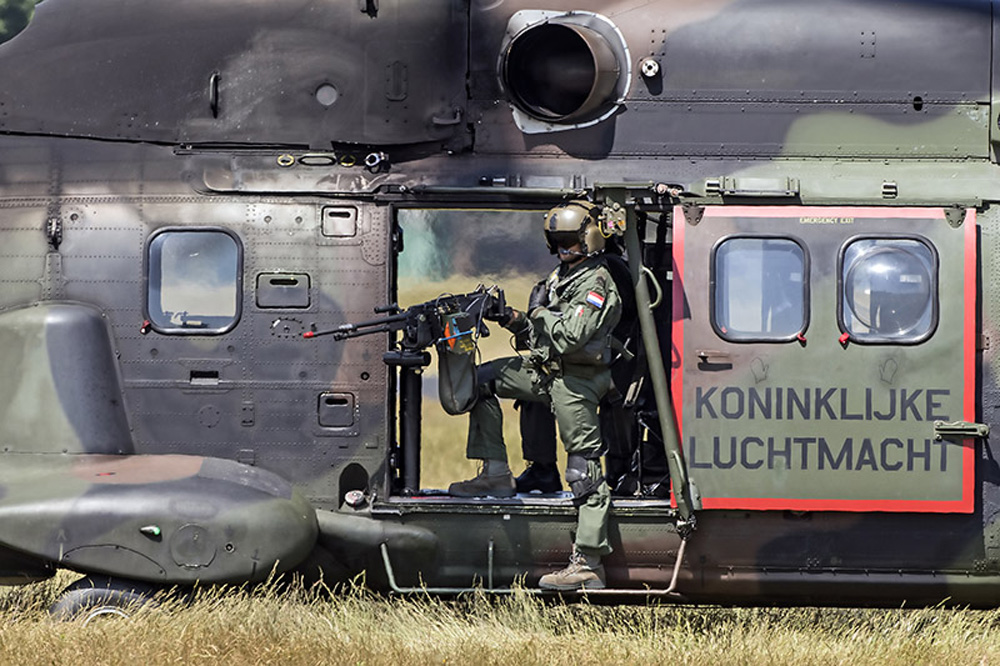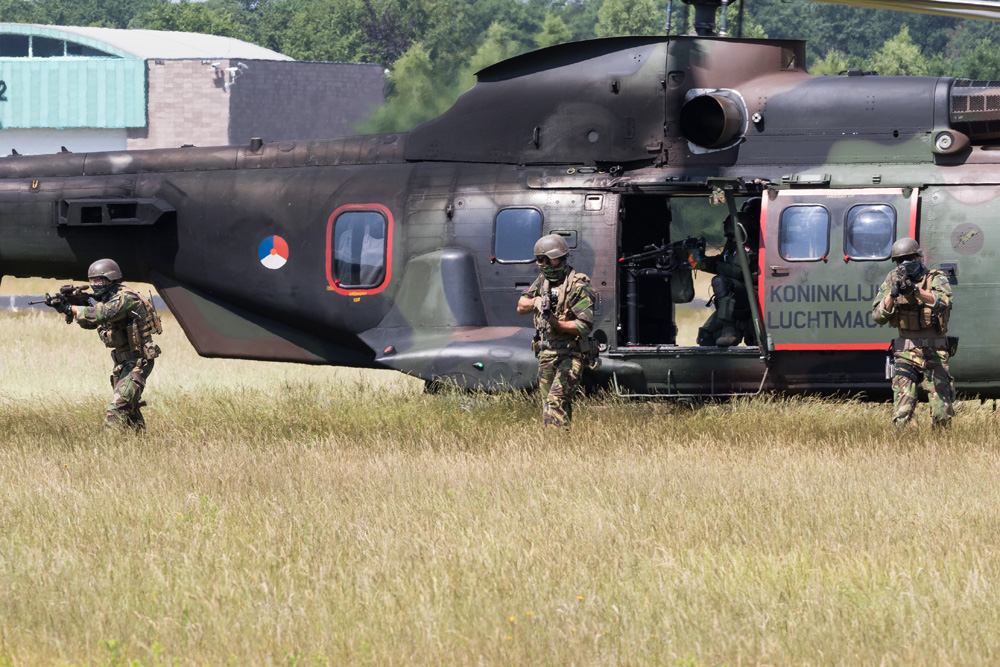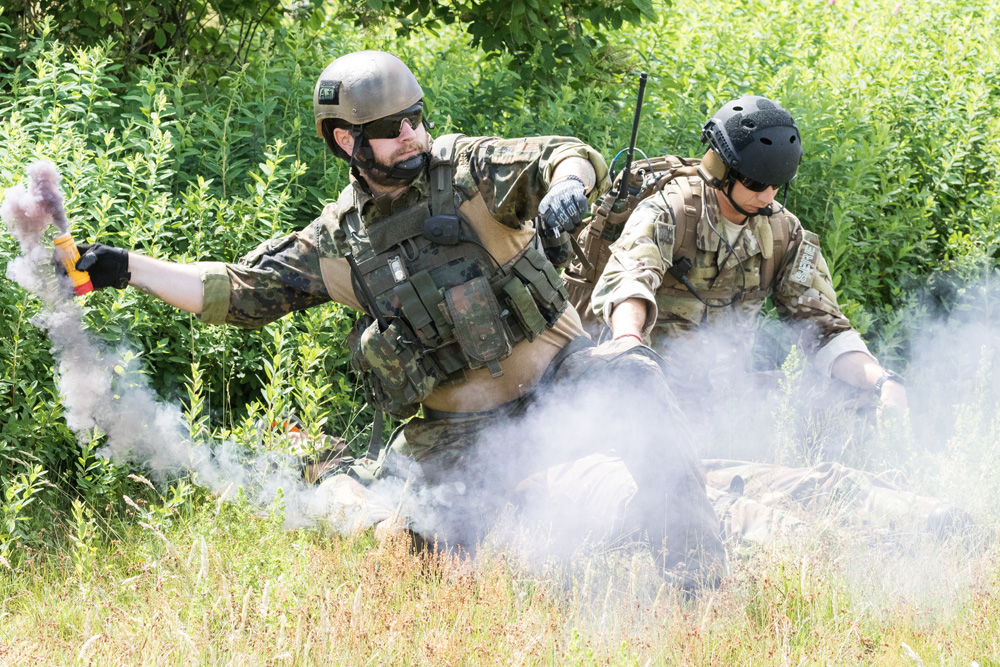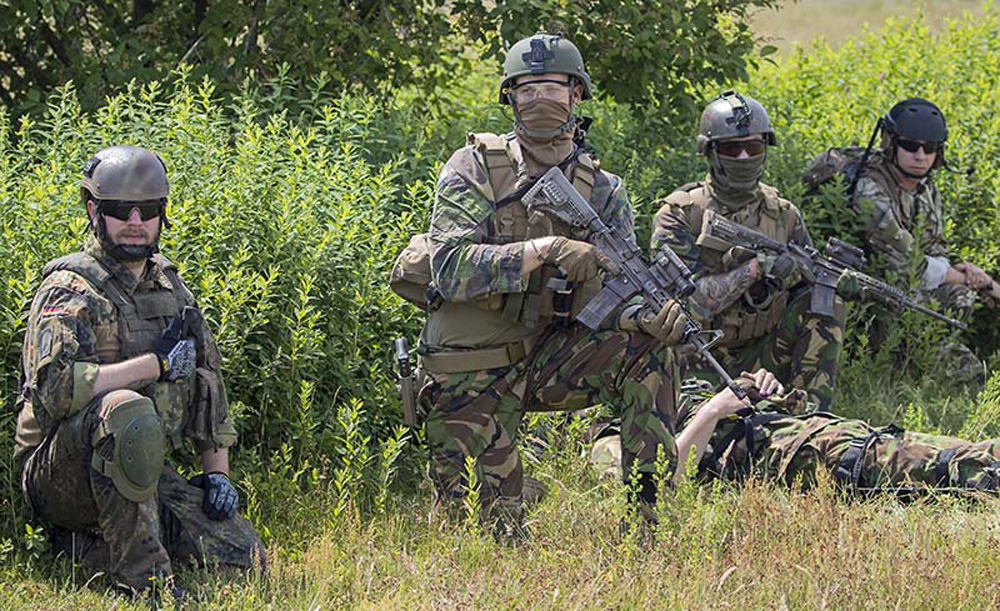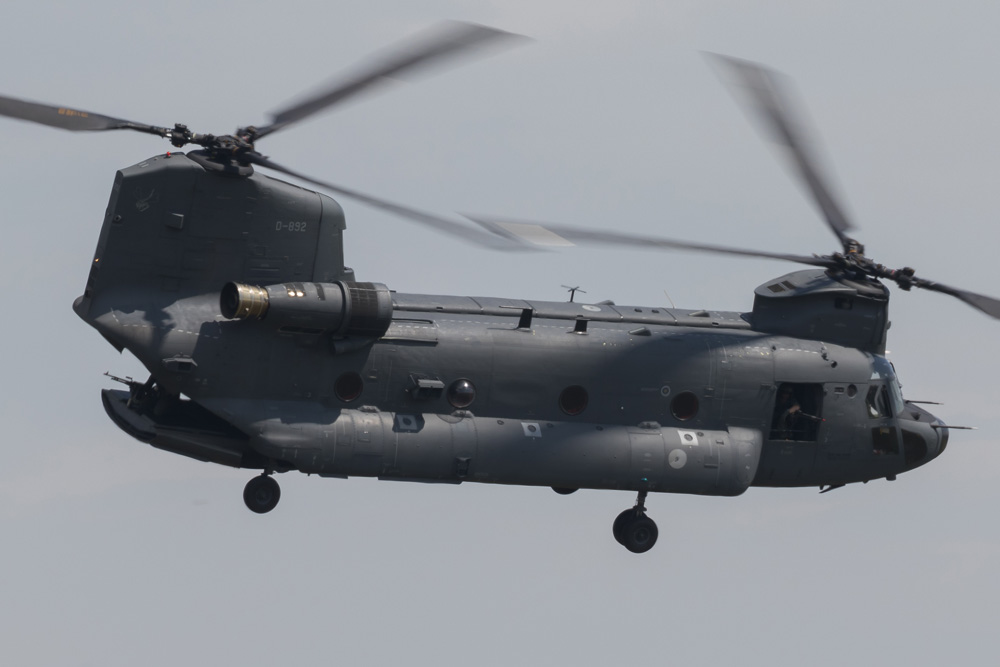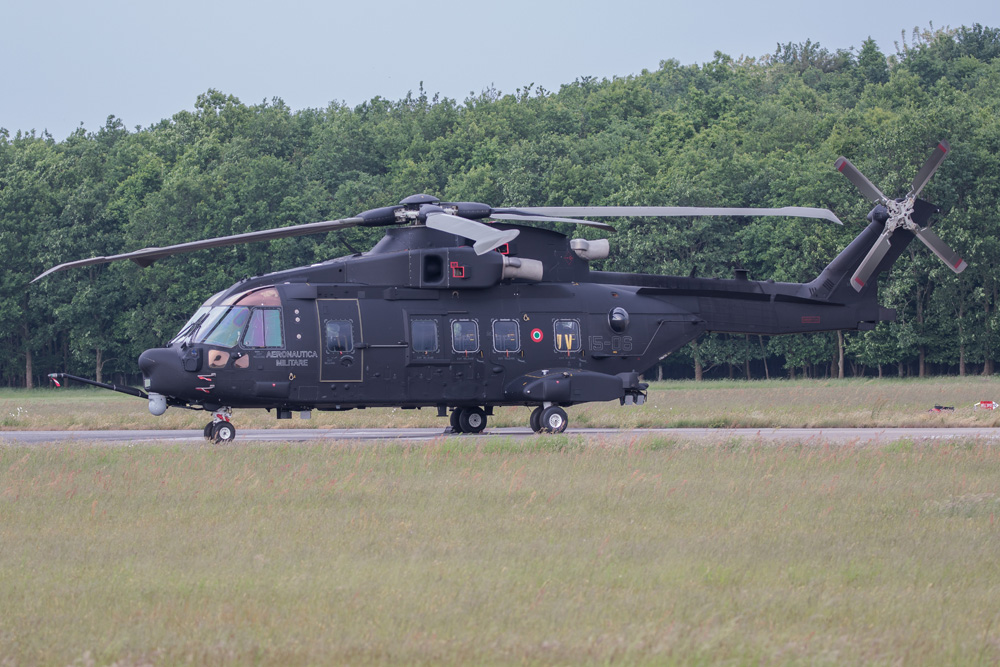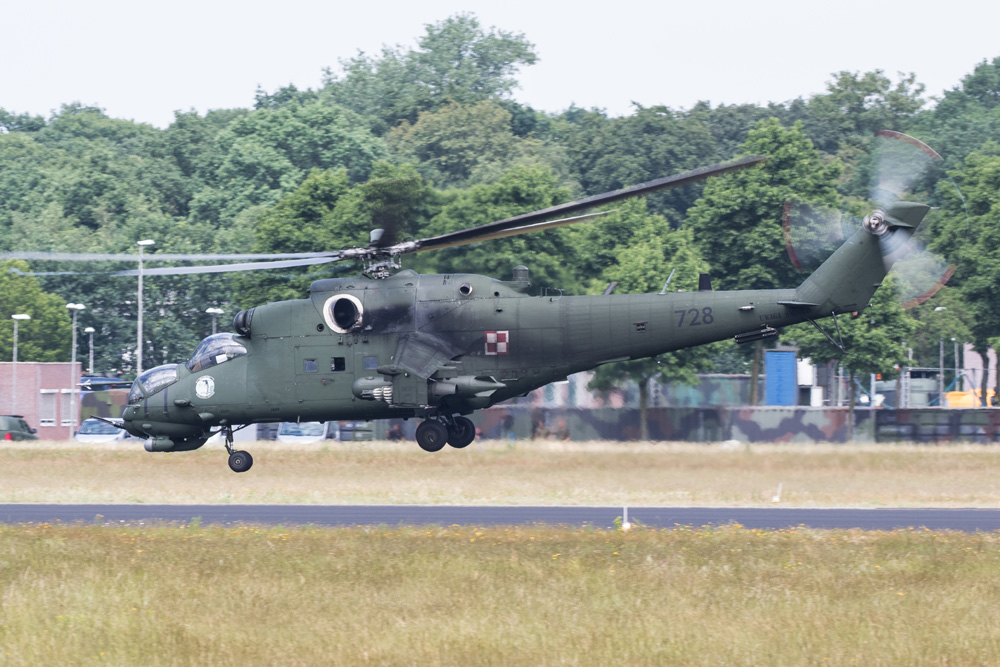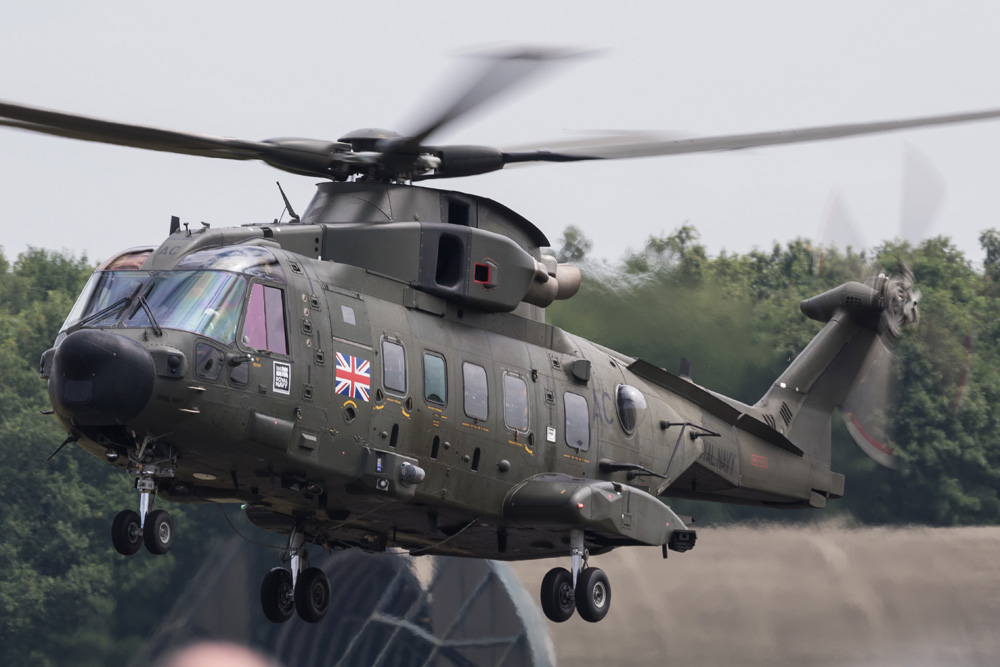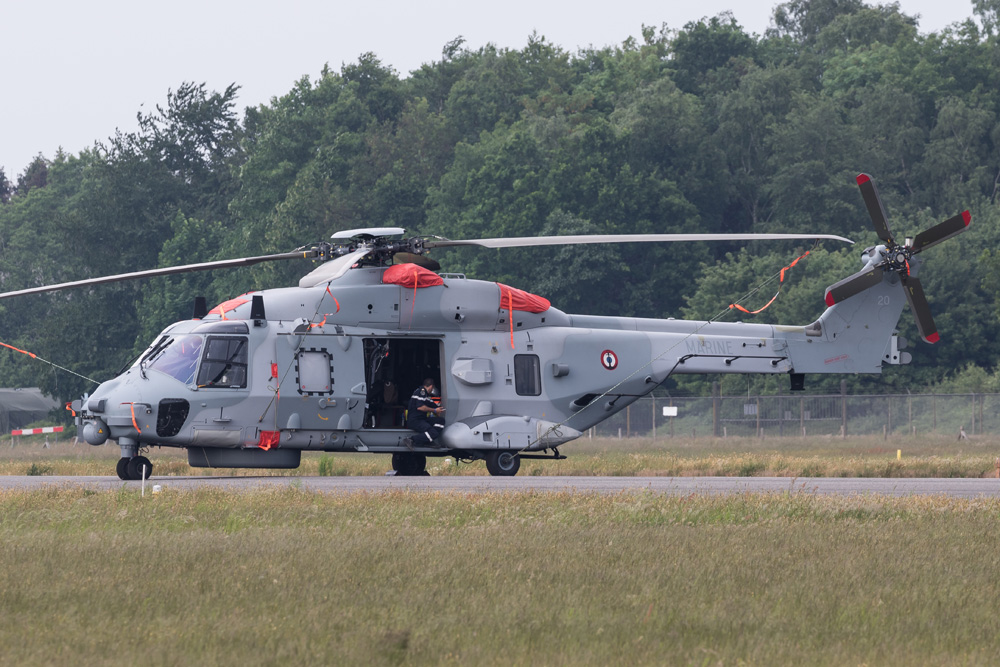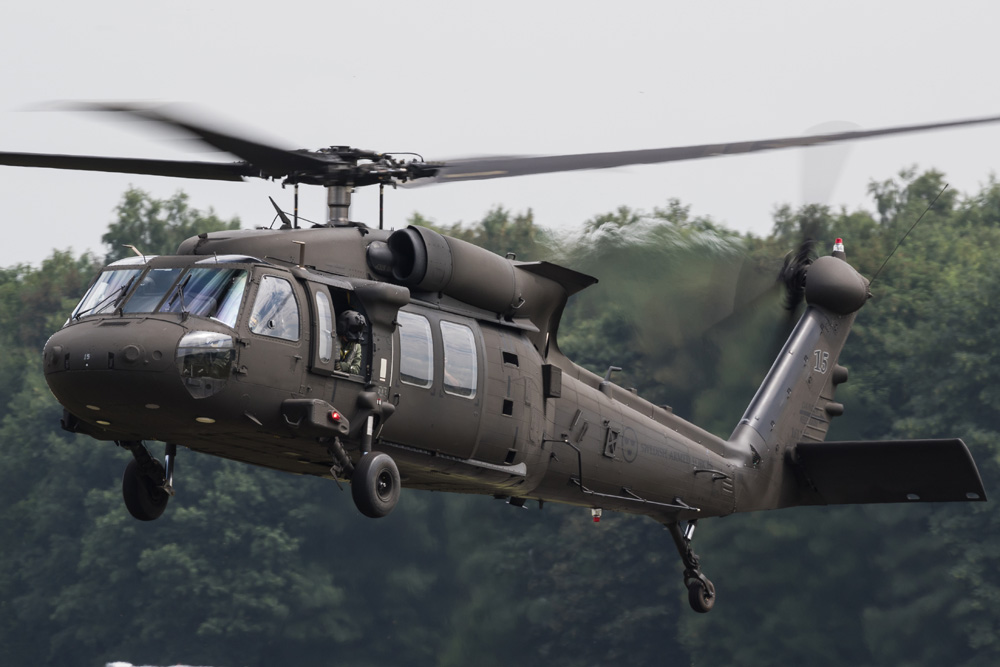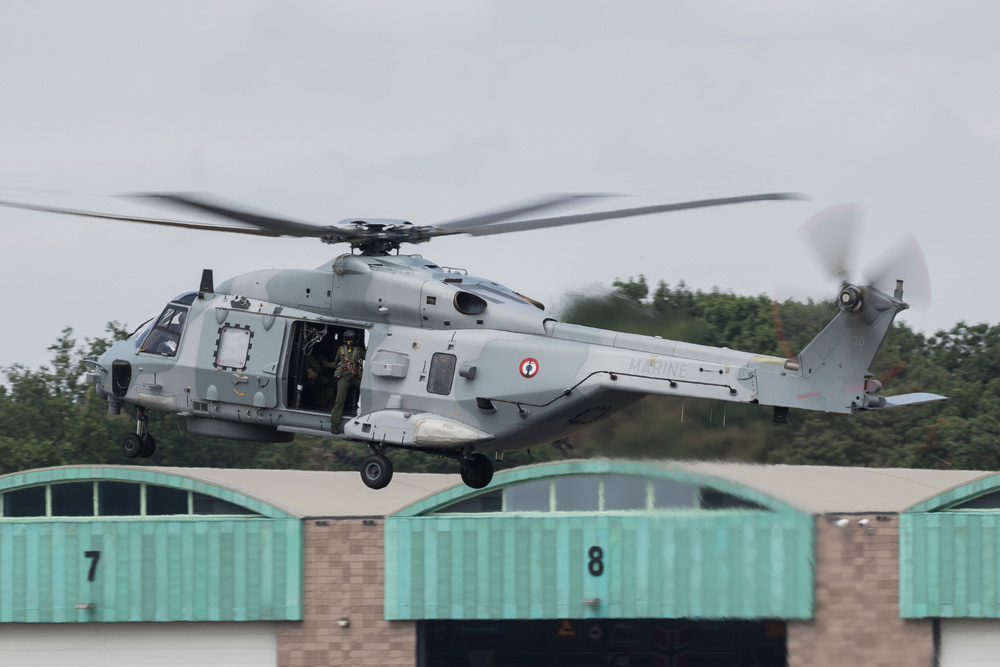The European Personnel Recovery Centre (EPRC) has a clear motto: 'That others may live'! One could say, that this one phrase sums up spot on the most important thing there is to say about the EPRC and its activities. But, there's much more to elaborate about. For example, about the major Air-centric Personnel Recovery Operatives Course (APROC). This EPRCs main training event is one of its kind in Europe. The training involves military ground and air crews from almost all EPRC member nations and was for the first time held in The Netherlands last spring. The APROC was hosted by the Royal Netherlands Air Force Defense Helicopter Command (RNLAF-DHC), at Gilze-Rijen Air Base (AB). The first phase of the consists of theory lessons. During the second phase large-scale Combat Search-And-Rescue (CSAR) training missions were conducted.
Impact
With a 2011 primer about Personnel Recovery (PR), the Joint Air Power Competence Centre (JAPCC) wanted to provide international military leaders and staffs understanding the importance of PR and how they can imbed the concept into their respective organizations. The JAPCC is a team of multinational experts which provides solutions on air and space power challenger in order to safeguard NATO and its member's interests). The JAPCC document states that over the last two decades, situations involving isolated personnel and hostages have had a profound impact on politicians and the general public.
There are many examples where situations involving isolated personnel or hostages caused political embarrassment, and even where military operations had to either be significantly altered or ceased due to sensitivities tied to public perception. Lieutenant-colonel Bart Holewijn of the European Personnel Recovery Centre (EPRC) elaborates: "Examples from the past with a major impact on society are the capture of Gary Powers (U-2 pilot, shot down by Soviet Union in 1960) and the events that occurred with the United Nations Dutch Battalion during the Fall of Srebrenica (Bosnian-Serbian war during the 90s). The last-mentioned even led to the fall of the Dutch government." The impact on society of events in the world is even bigger in today's information and social media age, where everything we do can be recorded and shown on television and the internet. The consequences for isolated personnel and the impact of events on society have not gone unnoticed. Today there are several national and multi-national initiatives in the field of PR. The 2011 primer led to the set-up of the EPRC.
EPRC
The EPRC was established in Poggio Renatico, Italy, on the 8th of July 2015. The EPRCs aim is to improve the capabilities in the area of PR. Its mission is formulated as follows: 'To improve the four phases of PR (preparation, planning, execution and adaptation) by developing harmonizing PR policy, doctrine and standards through clear lines of communications with partners stakeholders (nations and international organizations) and provide assistance in support of education and training, exercises and operations as required.' The EPRC is staffed by personnel from different branches of the seven participating countries. These members are: United Kingdom, The Netherlands, Belgium, Germany, France, Italy and Spain.
Lieutenant-colonel Holewijn: "PR today is defined as the sum of military, diplomatic and civil efforts to effect the recovery and reintegration of isolated personnel. Isolated in this case means that military or civilian personnel who are separated from their unit or organization are in a situation that may require them to survive, evade, resist exploitation or escape while awaiting recovery. Any situation that is thinkable, such as a downed pilot, a crew at sea after their ship has sunken or even a citizen who ended up in a ditch with his car."
On the 23rd of February 2018 the EPRC was recognised by NATO as the 32nd Partnership Training and Education Centre (PTEC), after Italy as the host nation of the Centre applied in behalf of the EPRCs member nations for this status. With this recognition, the EPRC became part of the select group of organisations that play an essential role in supporting NATOs objectives whilst coming from diverse host organisations or nations.
APROC
The EPRC conducts courses, seminars and workshops to both military and civilian personnel in order to provide education and training in PR, consistent with the objectives and priorities of NATO's policy and doctrine. As a result, interoperability for NATO-led multinational operations will be improved by harmonized PR training, standards and procedures. The Air-centric Personnel Recovery Operatives Course is the EPRCs main course. This year's APROC was the third one entirely planned and conducted by the EPRC. The course was held from 23rd of May until the 6th of June at Gilze-Rijen AB, The Netherlands. Besides almost every EPRC member (only Belgium had to cancel), also Sweden and Poland participated with flying assets. In total approximately 577 personnel from 12 countries, 15 helicopters and three fighters participated flying from the RNLAF-DHC base. Participating also, but operating from their home bases, were one NATO E-3A (NATO AB Geilenkirchen) and two RNLAF F-16s (Volkel AB).
Holewijn: "The main objectives of the course are to train relatively young aircrew and Extraction Forces (EF) in planning and conducting complex multi-national and multi-ship missions. On top of that, the participating helicopters are dissimilar types. We teach our personnel to plan and conduct complex PR missions with a focus on procedures. Also, various threats are simulated in order to create the required scenarios by ground based and airborne support elements, such as fighter aircraft, testing the participants with increasingly difficult situations." During APROC experienced pilots can become a Rescue Mission Commander through learning to lead the planning and execution of complex missions and brief and de-brief the mission the higher commanders. EFs can also train their leadership to fully participate in the planning of the PR-missions. Secondary goals of the course are to train Airborne Early Warning crews to become proficient as Airborne Mission Coordinators and Rescue Escort crews to act as proficient On Scene Commander. Finally, EFs are trained to apply standards to recover isolated personnel and provide medical care to them as required.
SERE
PR is conducted with certain tactics. The lieutenant-colonel explains: "SERE defines the set of tactics, techniques and procedures that will give isolated personnel the tolls to survive in any environment. SERE stands for Survive, Evade, Resistance and Extract. SERE furthermore provides for tactics for soldiers to evade capture. If that's failed unfortunately, to resist exploitation by captors and, if the situation permits, to escape captivity to support their own or assisted recovery. Finally, to return with dignity."
SERE recognizes three levels of risks. Level A is applicable for all personnel and means little risks. Level B means a moderate risk of isolation or exploitation. The highest risk level, level C, means a high-level risk of isolation or exploitation. Depending on the estimated level, PR-missions are adjusted accordingly.
Training areas
The course consisted of two days of academics, followed by one day of familiarisation flights over the Netherlands. After that, eight flying days followed, during which each day three missions were flown. Every single mission consisted of a selection of the total field of participants (both people and material). All three missions were flown simultaneously. The training grounds used in The Netherlands include the Ederheide, the Kruispeel and Crayel (near Venlo). Three sites in Belgium were also used.
When asked why only these military training grounds are used during the APROC and, for example, not locations in more inhabited areas or even villages and cities, Apache pilot and crew trainer for this exercise, major Ronald 'Wally' Blankenspoor, replies: "Requesting practice areas in inhabited areas means that we have to comply with extra rules. On top of that, Dutch law prescribes that the governmental decisions about this have to be made public. In order to prevent too much attention being given to the exercise and possibly creating safety risks that we want to avoid obviously, we only use military training grounds. Safety comes first. And moreover, our military training areas are extremely suitable for the realistic scenarios we want to practice."
Interoperability
Interoperability is one of the most important key ingredients there is to make an international cooperation successful. Yes, the APROC training missions are only flown during daytime. Night flying missions could be an option and even desired, according to lieutenant-colonel Holewijn. "But before those become an option, the different national laws and regulations the aircrew of the EPRCs members have to respect today have to be harmonized too. And that could take some more time than harmonizing the procedures used within EPRC-context. Not every EPRC member has all necessary means available themselves to perform PR at the level we all would like to conduct it. Together we do and to be able to practice, improve and standardise procedures together is a huge step forward." Given the fact that the EPRC is recognized within NATO as an organization that fulfils an essential role in supporting NATOs objectives, one can only say that the previous comparable so-called exercises VOLCANEX and Combined Joint Combat Search and Rescue Standardization Course have found a worthy successor in the APROC.
Overview participating aircraft and helicopters
| Country | Type (number participating) |
| France | AS555AN (2), NH90NFH (1) |
| Italy | E-550A (1), HH101A (1), EH101-410UTY (1), EF2000 (2) |
| NATO | E-3A (1) |
| Poland | Mi-24V (2) |
| Spain | AS332B (1) |
| Sweden | Hkp.16A (1) |
| The Netherlands | CH-47D (1), AH-64D (2), AS532U2 (1), F-16AM (2) |
| United Kingdom | Merlin HC3A (2) |
| Total | 21 assets |
This article was also published in Lotnictwo Aviation International 8-2018.
